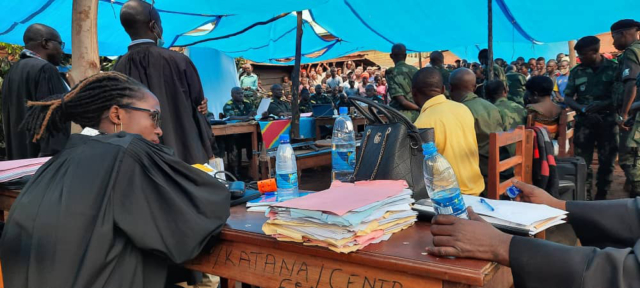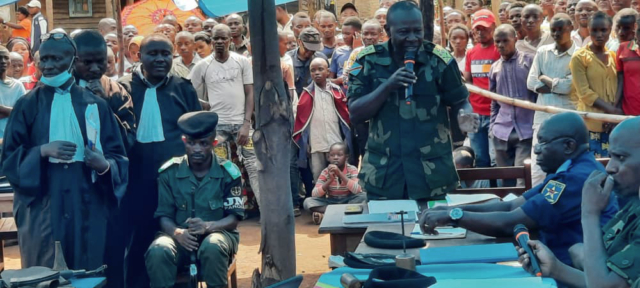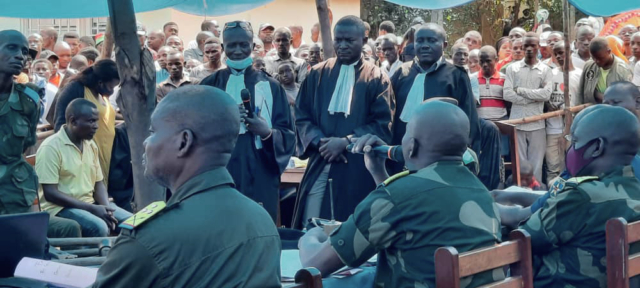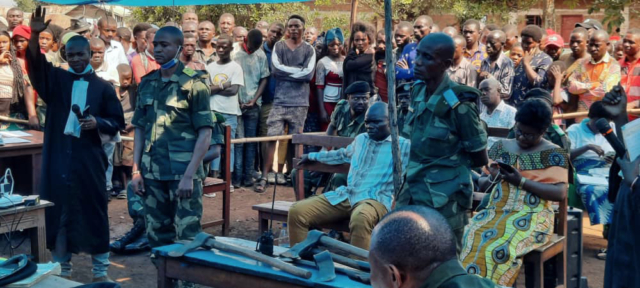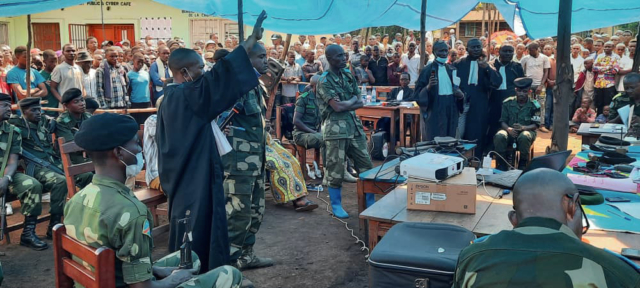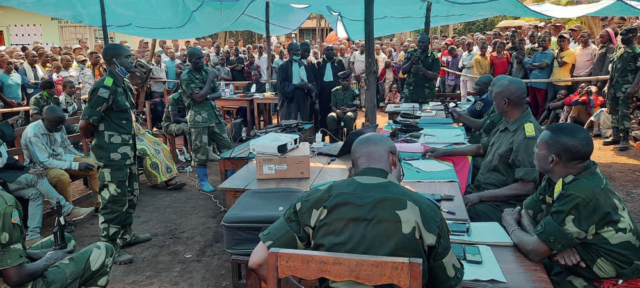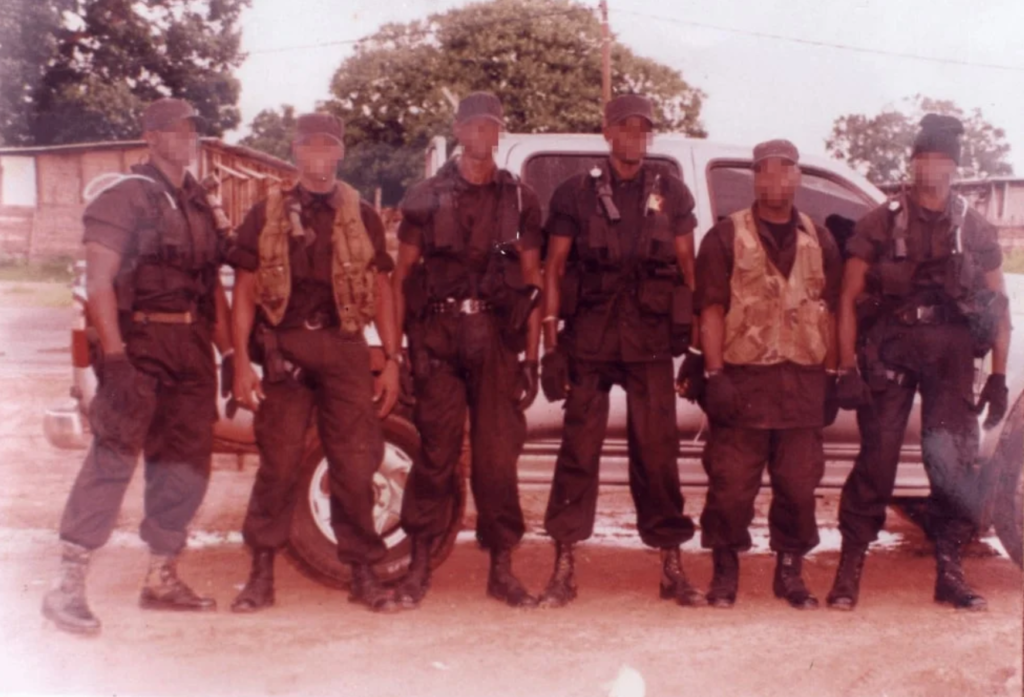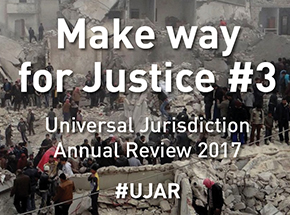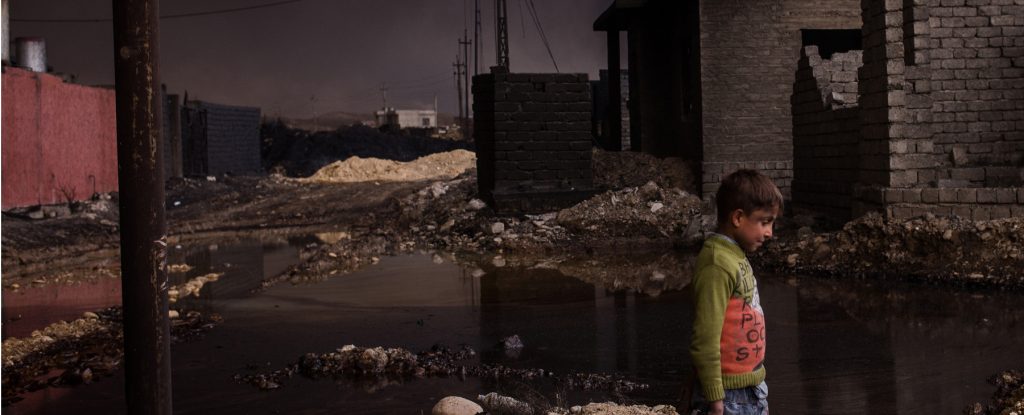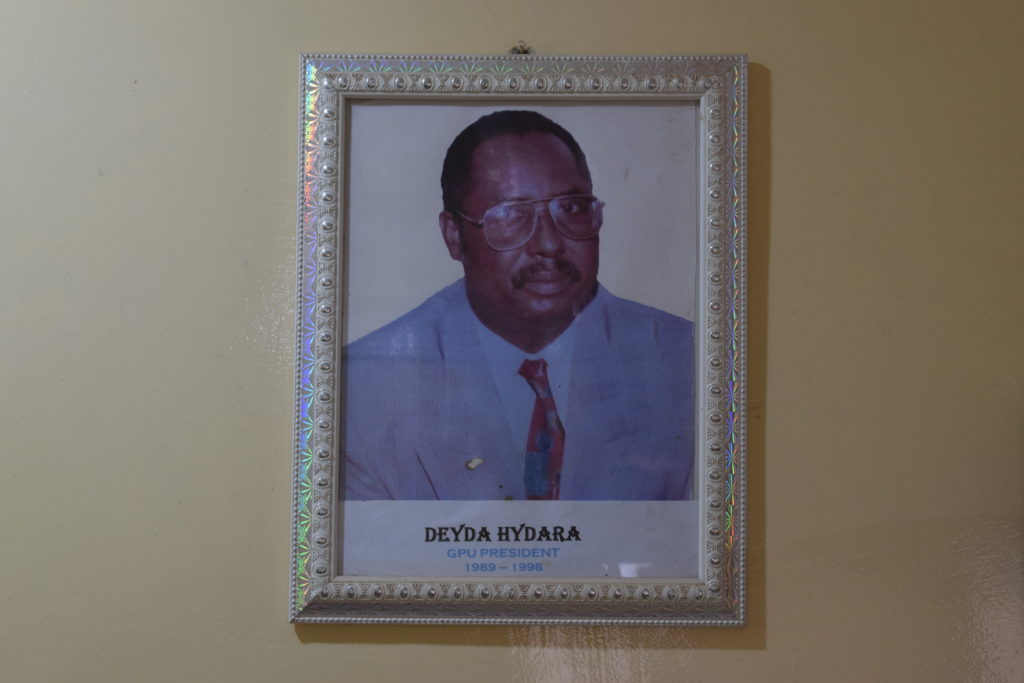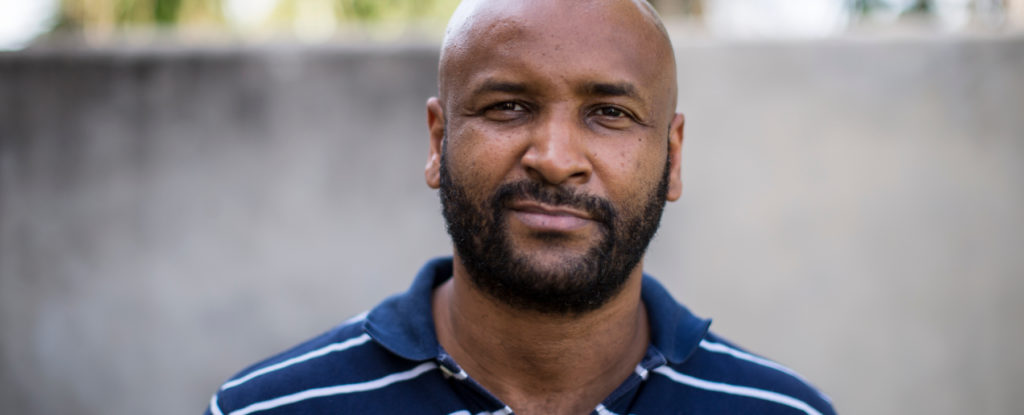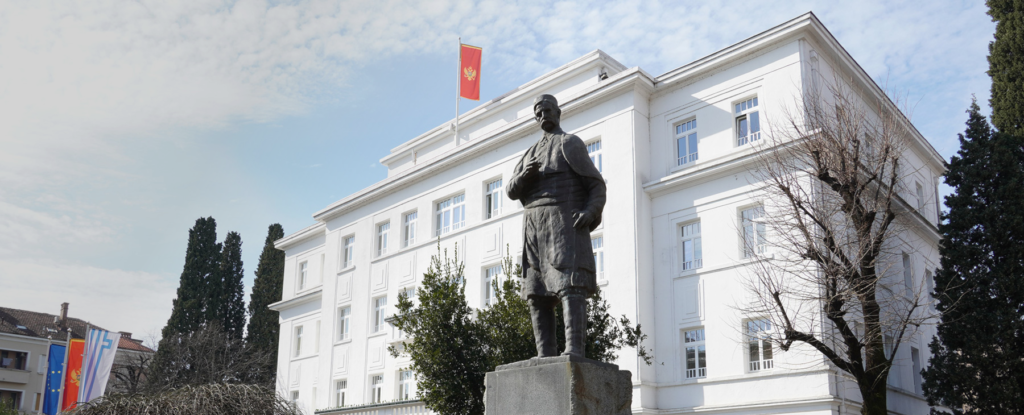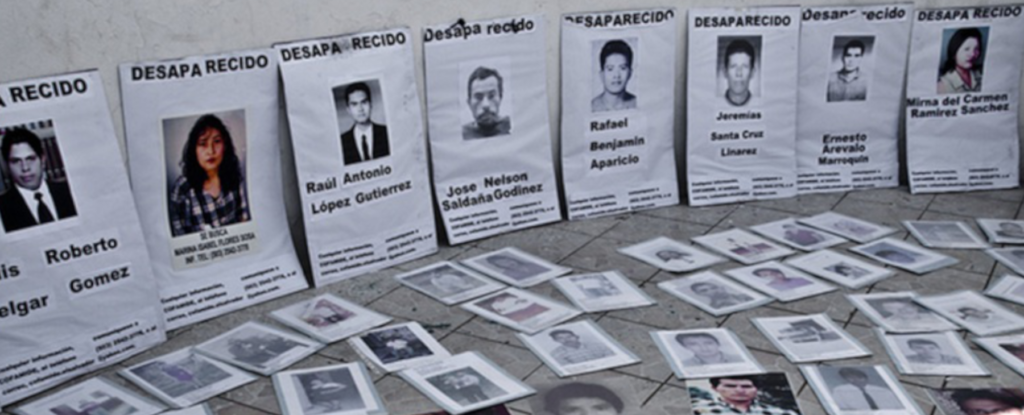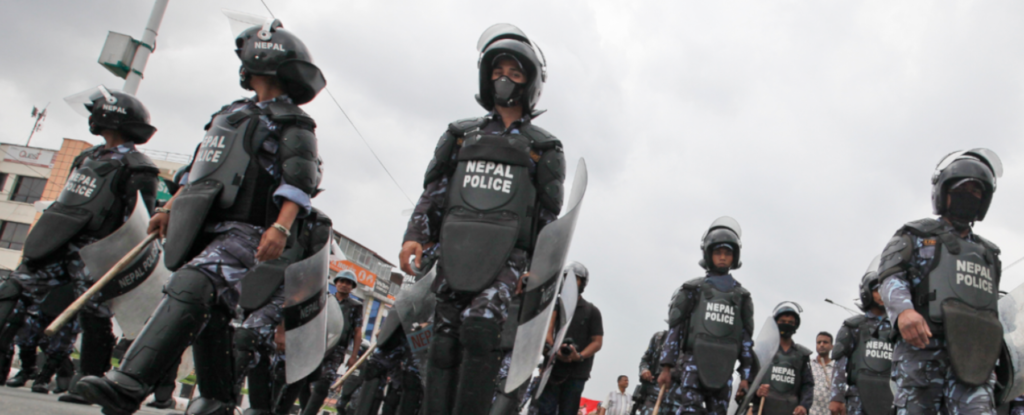DRC: Former militiaman Chance sentenced to life in South Kivu
Victims obtained a favorable verdict on 21 September 2021, only 8 days after the opening of the trial of a militia leader and his accomplice in the Congolese army, both accused of mass crimes – including environmental crimes. Events occurred in 2019, when the militia took control of part of the Kahuzi Biega National Park (South Kivu) to illegally exploit its natural resources. The militia kept nearby villages under its grip by using extreme violence.
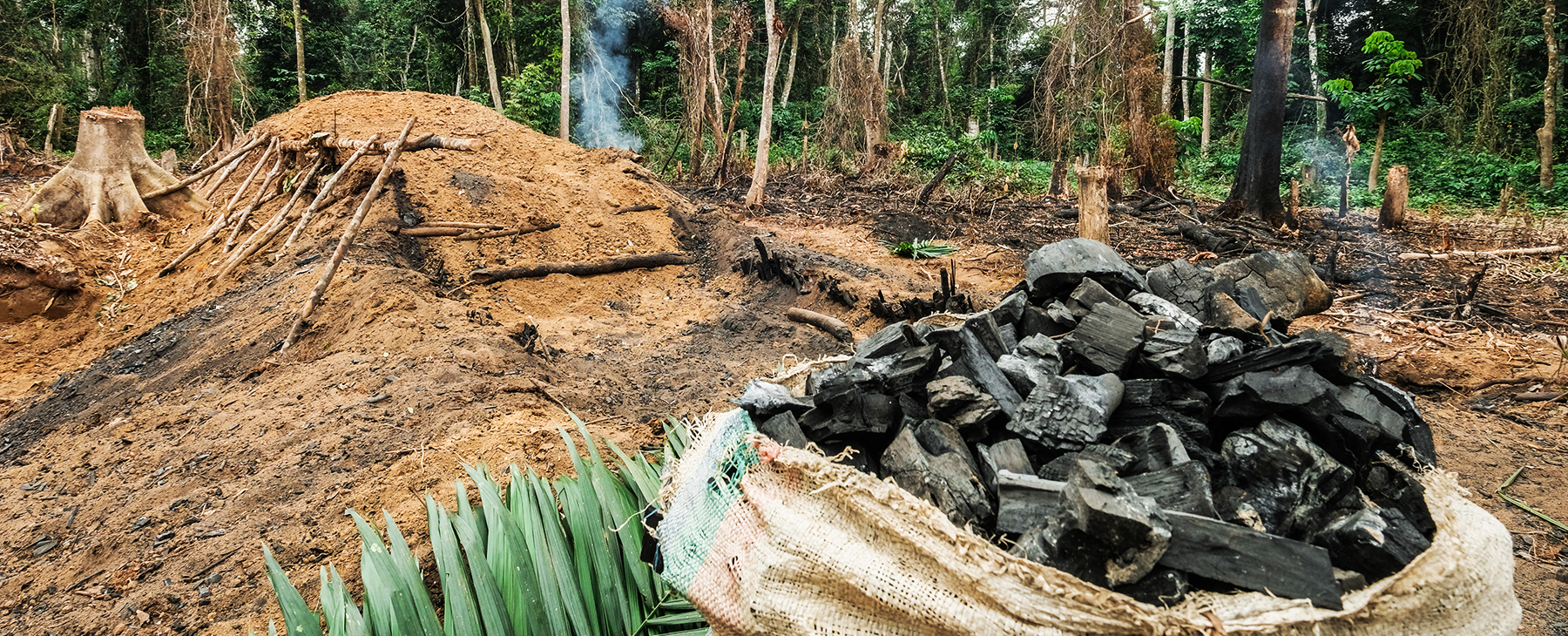
Kahuzi-Biega National Park in South Kivu has been a UNESCO World Heritage site since 1980 on account of its unique fauna and flora. But to protect the area, the Congolese authorities forcefully evicted the Pygmy communities who lived within the park’s boundaries.
Taking advantage of the resentment felt by these indigenous communities, an ex-member of the Congolese army (FARDC), Chance Muhonya Kolokolo, formed an armed group in order to regain control of a section of the park. Officially, Muhonya claimed he wanted to defend the right of the Pygmy communities to live on their ancestral soil. His true motivations quickly came to light: to exploit Kahuzi-Biega’s protected resources for his own gain.
An illegal but highly organized operation
Specifically, Muhonya and his men cut down trees and sold the wood and embers. They also dug mines and extracted ore from the soil. With the money from the sales, Muhonya bought weapons for his militia. The other defendant in the trial, Benjamin Mazambi Boji, is an army official who is thought to have sold the weapons.
Creating a brutal and highly organized system meant that Muhonya was able to control the villages located around the park. “Taxes” were levied on the extracted wood and ore, community work was made mandatory, and violent reprisals were used against civilians to intimidate them and extort more money from them. Amongst other methods, villagers were thrown in a hole dug in the ground and held captive until a ransom was paid. Some were also tortured and raped. Regular clashes between the militia and other armed factions further worsened the fate of the civilians living near the park.
Other abuses include the enrollment of child soldiers, most aged between 12 and 15 years old at the time. Muhonya took them away to keep their families in fear, then forced the young ones to collect “taxes” on resources and help with life in the camp.
Arrest and early investigation
In March 2020, the FARDC and Kahuzi-Biega park rangers launched an operation to take back the land occupied by the militia. On 23 May 2020, Muhonya was arrested and brought before a military court.
The trial, which began a few months later, did not include charges for international crimes. The acts of violence were considered as crimes committed under ordinary law.
“Many crimes were committed, but they were spread over time, which explains why they were initially treated as individual acts,” says Chiara Gabriele, Legal Advisor at TRIAL International who worked on the case. “Yet all the atrocities were part of the same modus operandi and the same criminal enterprise. In this respect, we managed to show that we were dealing with mass crimes.”
Further investigations were therefore carried out to ensure that all the crimes committed by Chance Muhonya and Benjamin Mazambi Boji would be brought before the courts. The trial was suspended while awaiting the findings of the additional investigations, including as regards the enrollment and use of child soldiers.
“Testimonies of child soldiers are key to proving the guilt of Chance Muhonya and his accomplices. Above all, however, we must avoid re-traumatizing the children. Given their young age, repeating their story in front of a court could be a terrible experience. With help from a psychologist specialized in interviewing children who have fallen victim to abuse, we are making sure that none of them suffer a second time,” says Ghislaine Bisimwa, Legal Advisor based at TRIAL International’s Bukavu office.
An anticipated verdict
From 13 to 20 September 2021, the crucial stage of hearing witnesses and victims took place in front of a mobile court, which means that the court sits in the very areas where the crimes were committed. Two lawyers specially trained in the prosecution of international crimes were appointed by TRIAL International to represent the 90 or so victims.
In its verdict of 21 September, the Military Court of South Kivu sentenced Chance Muhonya to life imprisonment for crimes against humanity by murder, rape and other inhumane acts but also for war crimes by recruiting and using child soldiers.
He was also convicted of violating and destroying protected areas, based on his group’s illegal deforestation and mineral exploitation activities. “This decision is a very important precedent, especially as the court has recognised the seriousness of the environmental crimes committed in the national park in relation to the illegal economic activities carried out by the armed group,” said Guy Mushiata, TRIAL International’s Bukavu-based programme coordinator.
All the victims were awarded reparations ranging from USD 3,000 to USD 10,000. The Congolese state was found to be civilly liable. Chance’s accomplice, Congolese army Major Benjamin Mazambi Boji, who was suspected of facilitating the transfer of arms to the armed group, was acquitted for lack of sufficient evidence.
The appeal trial was held in Bukavu in September 2022. After mobile court hearings, the High Military Court issued its verdict on 23 September 2022. The court upheld the conviction of Chance Muhonya to life in prison for crimes against humanity. The crimes of recruitment of child soldiers as well as the crimes against the environment were also confirmed.

